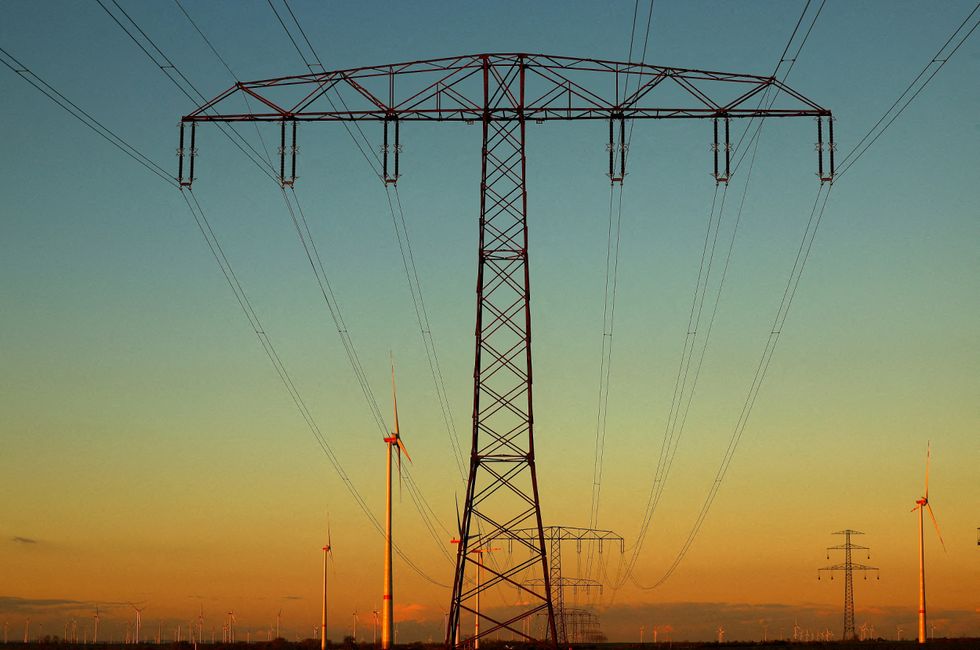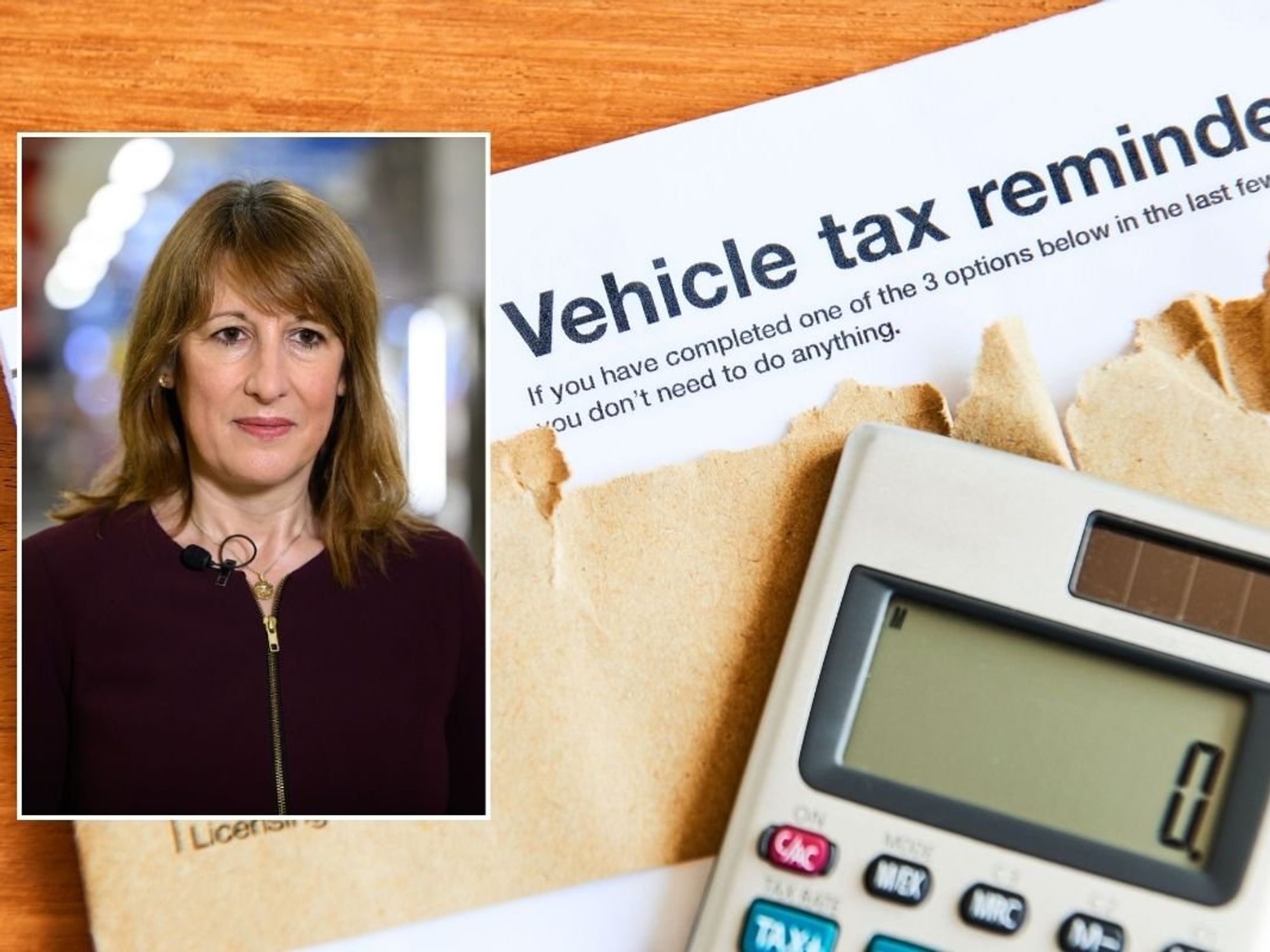Power cut warning issued as £300 hike in electricity bills found to be driven by net zero costs
One expert warns that hidden costs are already hitting families hard
Don't Miss
Most Read
Britain faces the twin threat of soaring bills and looming power cuts, according to new analysis which claims that net zero policies are driving up electricity costs.
Energy watchdog Ofgem confirmed last week that the energy price cap will rise by 2 per cent from October, adding around £35 to the average annual household bill.
The regulator admitted the increase is being fuelled by “constraint payments” - money handed to wind farms to switch off when the grid can’t cope with excess power.
Speaking to GB News, Andrew Montford - director of the think tank Net Zero Watch - warns these hidden costs are already hitting families hard.

Britain faces the twin threat of soaring bills and looming power cuts, according to new analysis which claims that net zero policies are driving up electricity costs
|GETTY
His analysis suggests that since 2015, the typical household electricity bill has risen by about £300 in real terms - and only a fraction of that reflects the actual cost of generating power.
“The reason your bill is more expensive than it was ten years ago is basically down to net zero policy. There isn’t much of anything else now. It is all net zero,” Montford told GB News.
“Of the £300 real-terms increase in the last decade, £200 to £250 is down to net zero policies.”
Mr Montford argues that policy costs, carbon taxes, renewable subsidies, and network charges now make up the bulk of household bills.
“The actual cost of making electricity is less than 25 per cent of the bill. The really big one is the policy costs - subsidies and carbon taxes - and those have risen sharply,” he said.
Ofgem does not publish a breakdown of how much of the price cap is linked specifically to net zero, but its latest statement confirmed the cap is being pushed up by balancing costs - including constraint payments to wind farms and payments to gas stations fired up as back-up when the wind drops.
LATEST DEVELOPMENTS:
Mr Montford estimates renewable subsidies alone cost around £12 billion a year, with carbon taxes adding another £5 to 6 billion.
While not all of this appears directly on bills, he said, “the consumer is paying all of it” - either through bills or higher prices in shops and services.
As the UK builds more offshore wind, these extra costs will only rise, he warns. “We’re having to invest in the network - new cables, new pylons to bring electricity from the North Sea to the Southeast. That’s a huge expenditure,” Mr Montford said.
“If we didn’t have net zero policy electricity would be so much cheaper. Essentially, if you sank every wind farm to the bottom of the North Sea, your electricity bill would fall through the floor.”
Mr Montford also warns Britain is likely to face brownouts - controlled power cuts to parts of the country - within the next decade if ageing gas stations are not replaced.
“Brownouts are a real risk,” he said. “By 2030, either prices will go through the roof - or we will be deliberately switching parts of the country off.”
He pointed out that Britain may not be able to rely on imports from Europe. “We could get into a bidding war for spare electricity from France, but everybody else who has developed renewables is in the same position. Eventually the French or Norwegians will say no.”
The Government insists renewable energy remains central to long-term energy security. Energy Secretary Ed Miliband argues his “Clean Power 2030” plan will cut household bills by around £300 by the end of the decade, by reducing reliance on volatile international gas markets.
Ofgem echoed that line this week: “We will continue to see fluctuations until we are insulated from volatile international gas markets,” adding that building a “homegrown, clean energy system” is essential.
But critics say consumers are already paying the hidden costs of intermittent wind and solar.
A new report by Oxford economist Professor Dieter Helm concluded: “A unit of solar or wind power is not of equivalent value to a unit of gas (or nuclear)… There are very large curtailment costs already. Consumers are already paying for lots of electricity they don’t use.
International comparisons also paint a bleak picture. Government data last year showed the UK has among the highest household and industrial electricity prices in the developed world.
"Countries with cheaper energy tend to rely less on wind and solar or have access to abundant hydro power," Mr Montford said.
He added that the consequences stretch beyond bills. “We’ve lost most of our aluminium making, most of our steelmaking, and all our fertiliser manufacturing. The chemicals industry is signalling it’s in big trouble,” he said.
“In terms of national security, a completely de-industrialised country is not a good thing to be.”
For households, he said the picture is equally stark. Mr Montford cites modelling that Ed Miliband’s 2030 plan could add £25 billion a year to system costs - “more than £1,000 per household” across the wider cost of living.
“That is kind of like the levels we saw at the peak of the crisis in 2022. It’s essentially making the energy price crisis permanent,” he told GB News.

Ofgem admitted the increase is being fuelled by 'constraint payments' - money handed to wind farms to switch off when the grid can’t cope with excess power
| REUTERSA spokesman for the Department of Energy Security and Net Zero said: “These claims will fully ignore the fact our dependence on gas drove up energy bills during the energy crisis, with wholesale gas costs remaining 75 percent higher than they were before Russia invaded Ukraine in 2022.
“The only way to bring down energy bills for good is by making Britain a clean energy superpower, which will get the UK off the rollercoaster of fossil fuel prices and onto clean, homegrown power that we control.”
More From GB News











